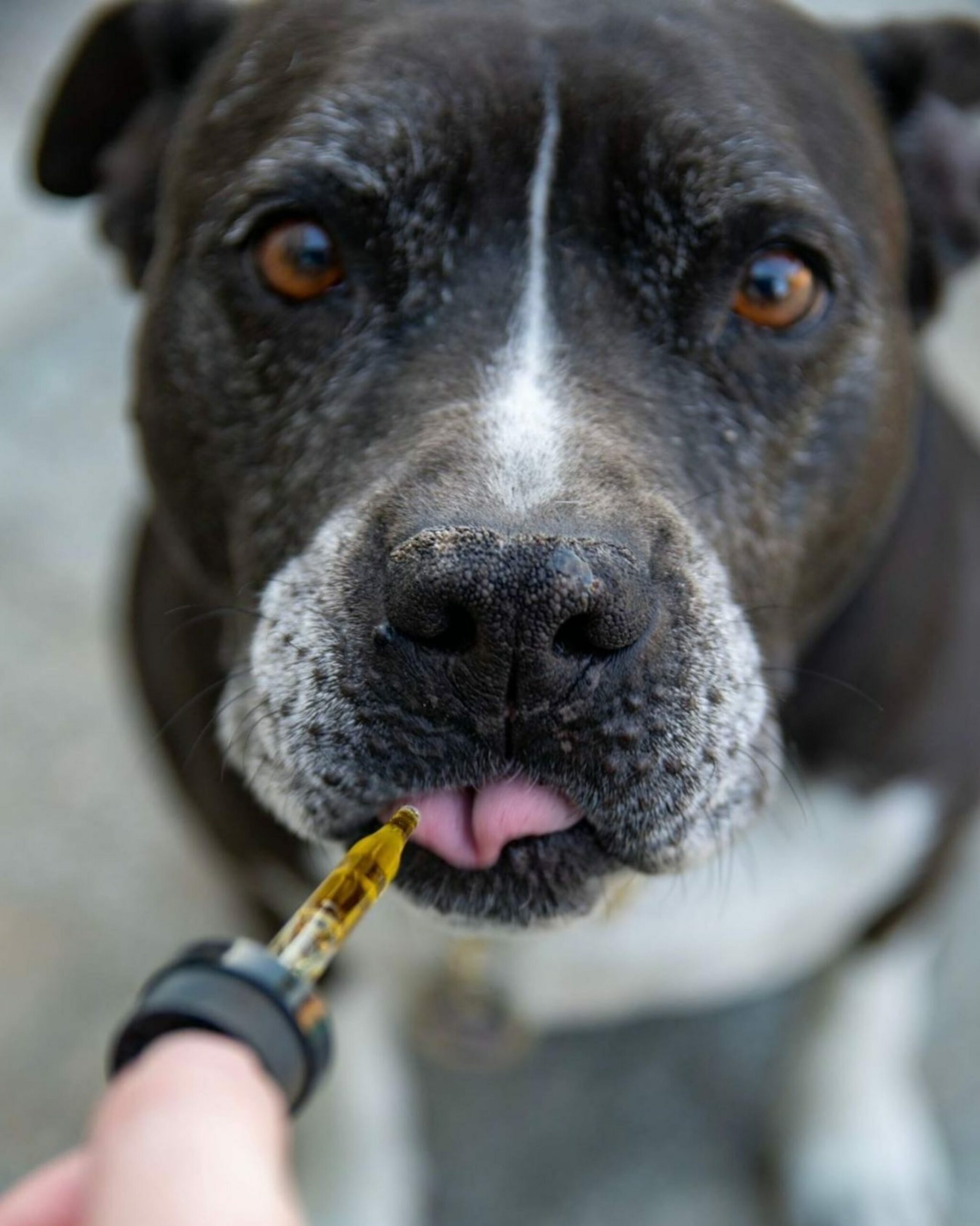News
Is CBD good for pets?

CBD and pets?
If studies tend to confirm the supposed virtues of CBD on the human body, the same is true for CBD and pets, often the first to test products and their hypothetical medicinal virtues in laboratories.
Indeed, it would appear that cannabidiol is capable of regulating numerous physiological processes in mammals. We share an endocannabinoid system capable of metabolizing CBD and, consequently, assimilating its properties. As THC is a psychotropic drug (as well as being illegal in France), we strongly advise against giving it to your pets, as the effects can be very harmful and destabilizing for our four-legged friends. CBD, on the other hand, is a milder alternative, offering no high.
A dog, a cat, a rat, a horse... can all benefit from CBD. It's possible to give them CBD without fear, as long as a certain dosage is respected (even if it's difficult to overdose with CBD, it's important to take morphology into account). High-quality, natural, organic CBD with low THC content is unlikely to have any harmful effects on your pet, and according to some studies, may even help regulate certain disorders.
CBD-based products are dietary supplements, not medicines, so it's advisable to talk to a professional before prescribing. Some veterinarians are already beginning to recommend the use of therapeutic cannabis for animals as a complement to their usual care. A trend that could well be confirmed in the years to come.
How can CBD benefit animals?
Just like humans, animals can experience stress and anxiety for a variety of reasons. When they've been weaned too early, are left alone at home, have moved house, are on a long journey or have undergone traumatic events in their lives, their behavior is permanently affected. This stress can manifest itself in various ways: excessive barking/miowing, whining, unusual aggressiveness, running away, a tendency to damage your belongings while you're away or to relieve themselves in the house... the list goes on.
If the good relationship you have with your pet remains paramount, CBD can help it regain a certain calm. Animals aren't usually made to be left alone or to change environment too often, but life sometimes imposes a certain rhythm that we involuntarily subject them to.
CBD would also be useful for alleviating pain in animals, particularly joint pain specific to aging, intensive activities or following trauma (shock, fall, accident...). Published on July 23, 2018, the study by Cornell University's School of Veterinary Medicine in the United States1 demonstrated a significant reductioninpain in dogs thanks to the administration of CBD oil (2mg per kilo of body weight) every 12 hours for 4 weeks.
How and in what proportions should you administer CBD to your pet?
The easiest way is to mix CBD directly into your pet's food or drink. CBD oil seems to be the best choice for this, especially when it comes with a pipette for precise pouring. Flowers can be more complex to administer, as animals have a much more developed olfactory sense than we do, and may simply abandon your preparation.
As there are still few studies on the subject, it is difficult to establish a precise dosage according to the species and morphology of the animal. Weight remains a good indicator, however, and you can base your dosage on our table initially designed for humans, respecting the proportions and avoiding any dosage higher than 10%. As an animal is unable to communicate its sensations through speech, we strongly advise you to proceed with great caution, starting with a minimum dose and using a low-dose product.
An oil containing 5% CBD should be sufficient for a cat or dog. According to some studies, it's possible to administer 1 to 2 mg of CBD per kilo of body weight without any noticeable side effects. You can therefore start with one drop of oil a day, then gradually increase the dose until your pet feels better. Remember, your veterinarian's advice is essential!
How to choose the right CBD oil for your pet?
The best thing to do is to assume that if an oil is good for you, then it's bound to be good for your pet. With CBD a victim of its own success, some unscrupulous retailers and producers don't hesitate to supply poor-quality products. On February 7, 2020, ElleVet Sciences, an American pet product manufacturing company, published a disturbing 2 survey of nearly 29 marketed CBD oils dedicated to pets. The results are edifying, since only ten of them comply with the CBD levels displayed, four of them contain traces of heavy metals, including lead... and only 18 out of 29 have cannabinoid concentrations in line with the bottle's labelling.
This is hardly surprising, unfortunately, since the same is true of certain oils dedicated to humans. CBD suppliers who wish to provide a quality product will systematically provide all the necessary guarantees by clearly and transparently informing consumers about the production chain of their oils. So, for your pets, choose an organic, low-concentration oil (5-10% CBD), with the following information easily verifiable on the website or in the store:
- Where hemp comes from
- CBD manufacturing and extraction methods
- Legislation in force in the country of distribution
- Information and warnings on use (dosage)
- Certification that the product has been tested and approved by an independent laboratory
Please do not hesitate to contact us if you have any questions.

